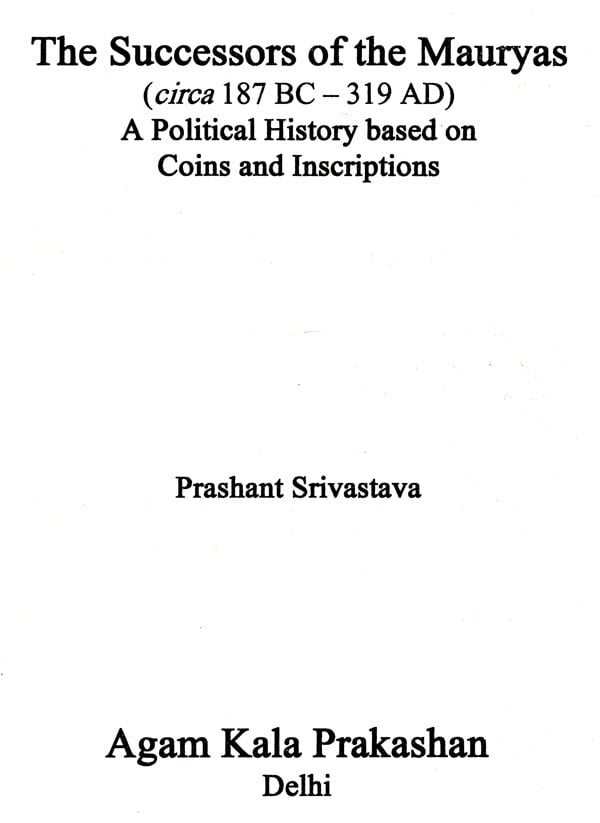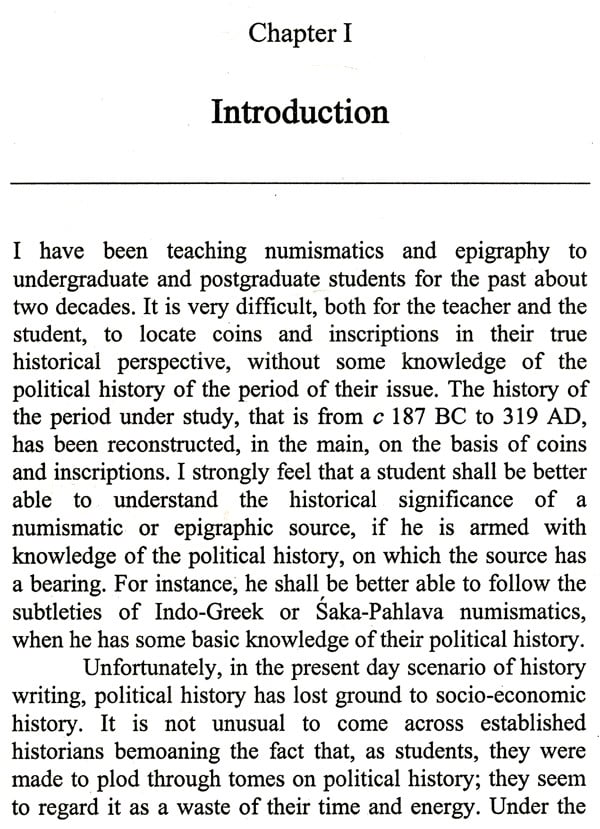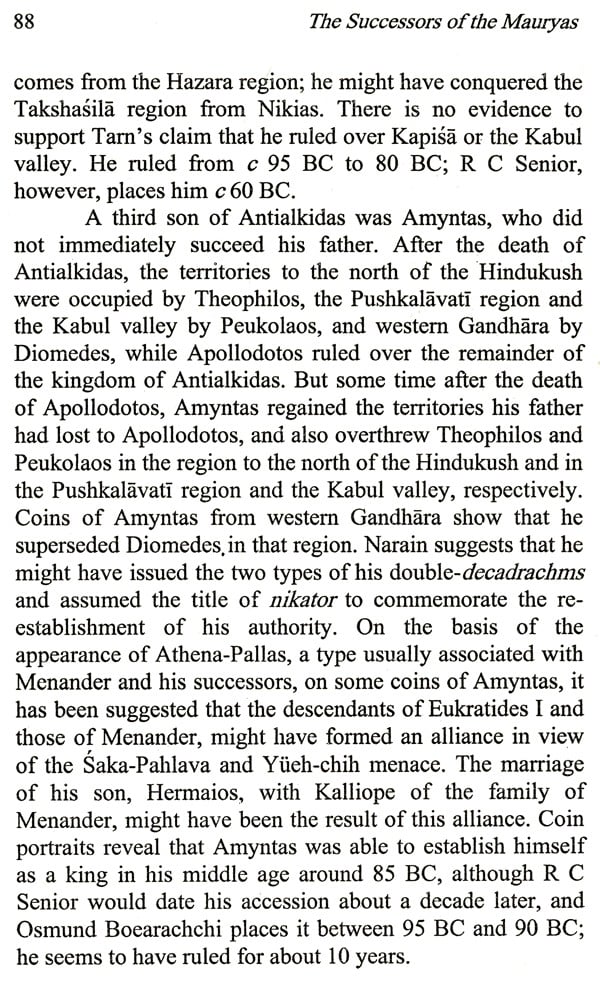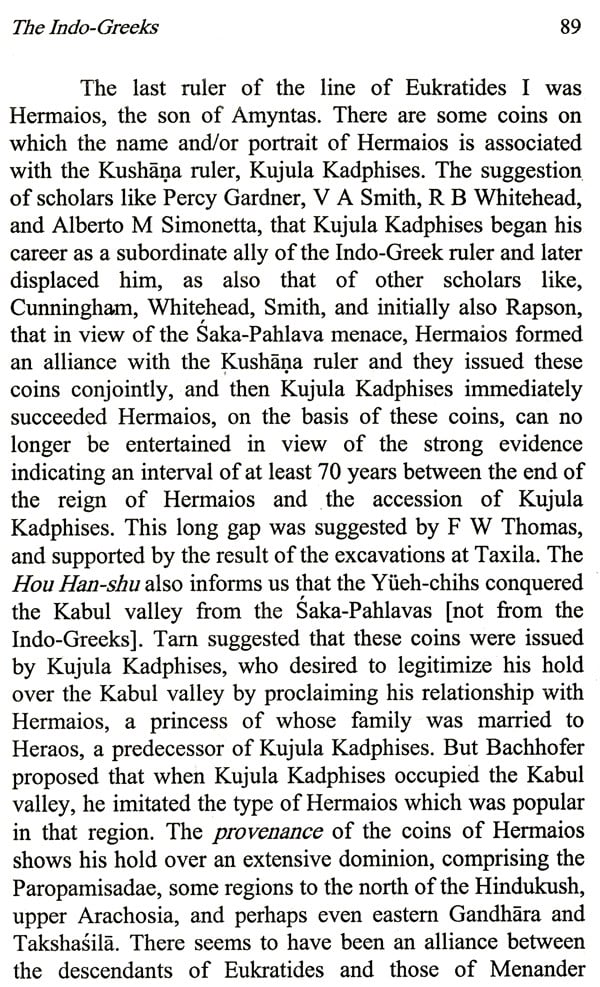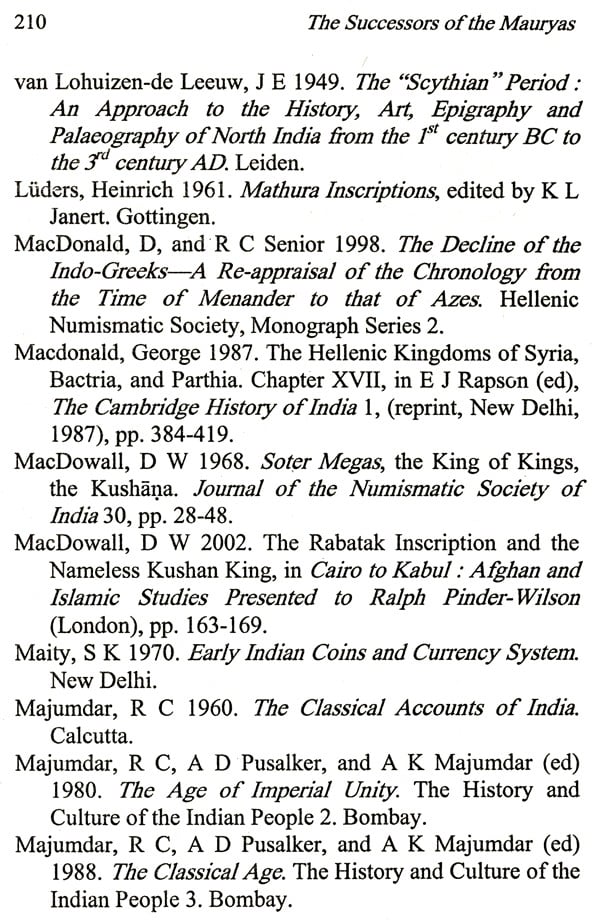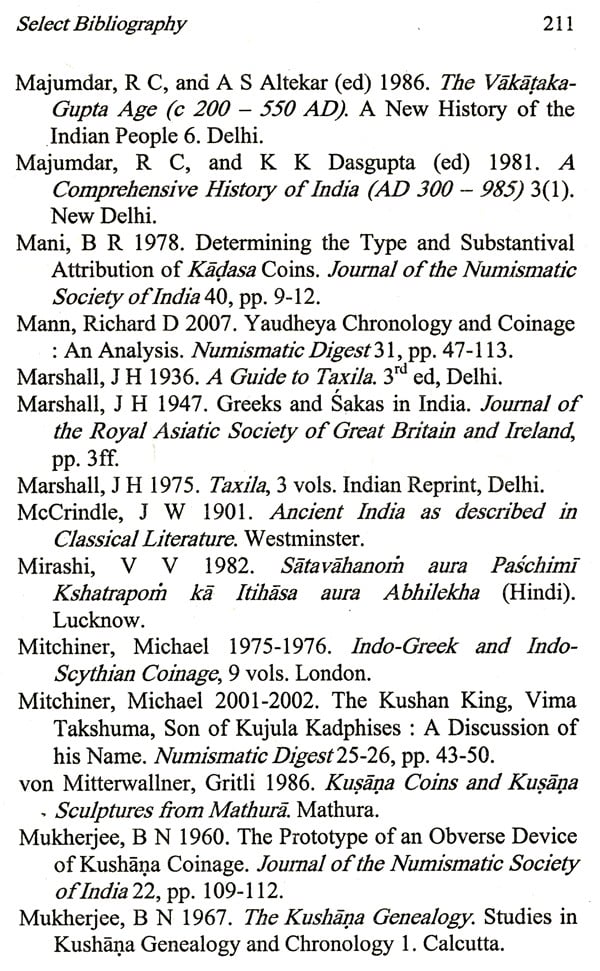
The Successors of the Mauryas (circa 187 BC-319 AD) A Political History Based on Coins and Inscriptions
Book Specification
| Item Code: | AZH061 |
| Author: | Prashant Srivastava |
| Publisher: | Agam Kala Prakashan, Delhi |
| Language: | ENGLISH |
| Edition: | 2017 |
| ISBN: | 9788173201295 |
| Pages: | 232 (Throughout Black and White Illustrations) |
| Cover: | HARDCOVER |
| Other Details | 9.00x6.00 inches |
| Weight | 472 gm |
Book Description
The work is meant, primarily, for undergraduate and postgraduate students, who have offered courses in ancient Indian numismatics and epigraphy. Teacher and student, alike, often find is difficult to locate coins and inscriptions, in their true historical perspective, without some knowledge of the political history of the period of their issue. Unfortunately, in the present day scenario of history writing, where political history has lost ground to socio-economic history, there are few up-to-date works, dealing with the political history of the successors of the Mauryas, up to c 319 AD.
Dr Prashant Srivastava (BA Honours, MA, PhD, DLitt) is Professor, and former Head, Department of Ancient Indian History and Archaeology, University of Lucknow, Lucknow. He has been awarded four gold medals (BA Honours-one; MA-two; DLitt one). He is the author of 14 books, including Joint Coin-types of Ancient India (Varanasi, 1990); Aspects of Ancient Indian Numismatics (Delhi, 1996); Coins of Ancient India (Lucknow, 1997, jointly with Professor K K Thaplyal); Art Motifs on Ancient Indian Coins (New Delhi, 2004); The Apracharajas (Delhi, 2007); and Gleanings in Ancient Indian Numismatics (Delhi, 2014). He is one of the editors of History and Heritage: Essays in Honour of Professor K K Thaplyal (3 volumes, Delhi, 2007); A Bouquet of Indian Heritage: Research and Management (2 volumes, Delhi, 2015); and Indian Culture and Art: Continuity and Change (2 volumes, Delhi, 2015). He is an assistant editor of Aitihya, a research journal of Ancient History and Culture (Delhi).
The period c 187 BC to 319 AD, that is the period beginning with the decline and downfall of the Mauryas and ending with the rise of the Imperial Guptas, sandwiched as it is between these two great dynasties of ancient India, was, till very recent times, called the first dark age of ancient Indian history. However, it is one of the most interesting periods of ancient Indian history, and has received the attention of historians, most of them numismatists and epigraphists, as coins and inscriptions are the two major sources for the study of the political history of the period.
**Contents and Sample Pages**
